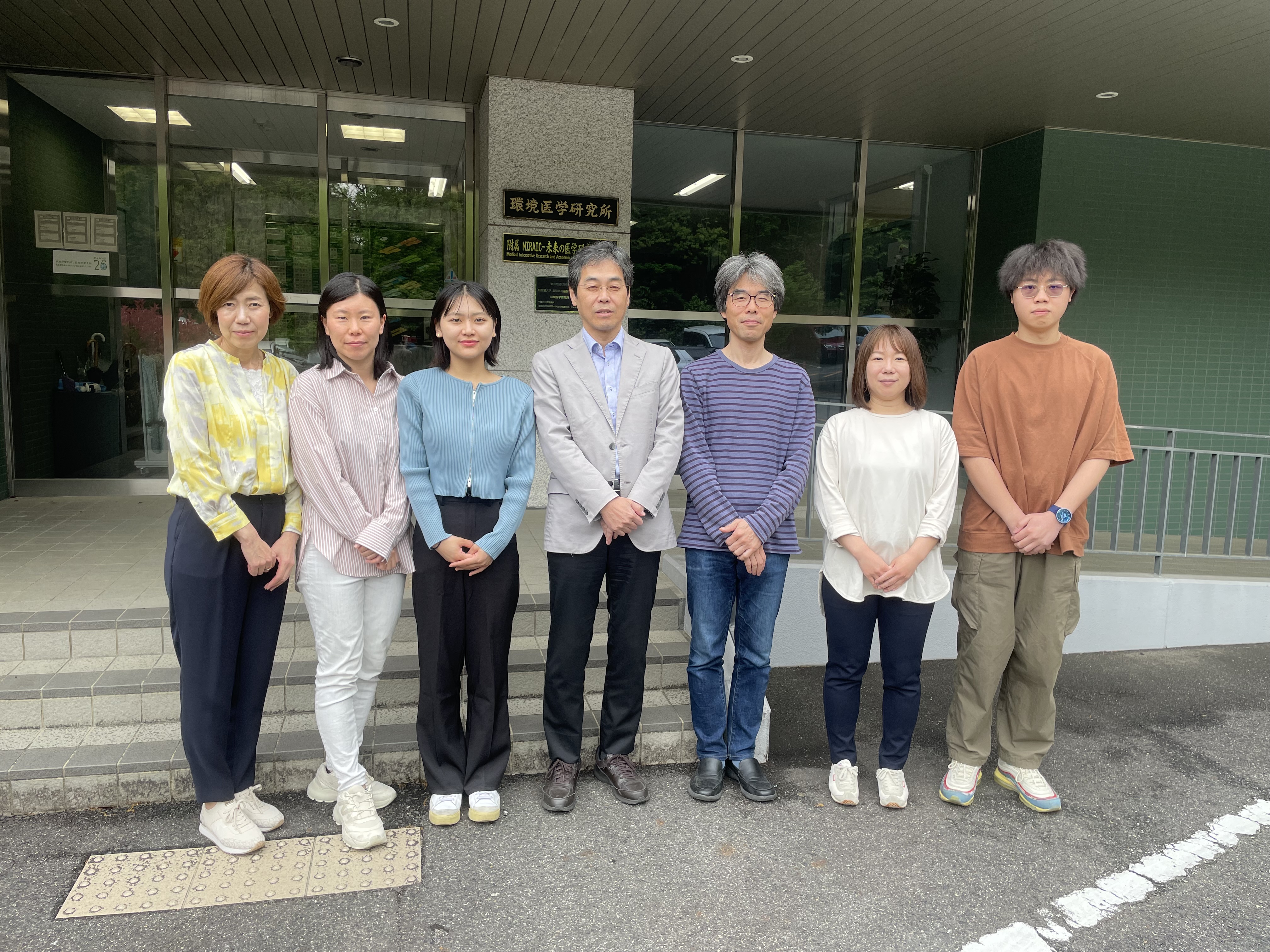Genome Dynamics

Staff



member

Research Projects
A myriad of lesions in DNA are caused by ubiquitous environmental and endogenous genotoxic agents. These DNA lesions can interfere with normal DNA metabolism including DNA replication, eventually resulting in mutations that lead to carcinogenesis, senescence and/or cell death. To cope with DNA damages, cells have multiple mechanisms such as Cell Cycle Checkpoint, DNA Repair and DNA Damage Tolerance which includes TransLesion Synthesis (TLS). Dozens of inherited diseases are known or suspected to be caused by defects of these mechanisms. This department aims to elucidate molecular bases of cellular DNA damage responses relating to the human disorders. We have identified human DNA polymerase eta (Polη) as the responsible gene product of XPV (xeroderma pigmentosum variant) and shown that Polη catalyzes efficient and accurate TLS past unrepaired UV-induced pyrimidine dimers, therefore prevents UV-induced carcinogenesis.
Major current projects are as follows:
Identification and/or analysis of:
- Regulatory mechanisms of TLS
- Unidentified DNA damage tolerance pathways
- Physiological relevance of DNA damage tolerance
- Crosstalk between multiple DNA damage response mechanisms
- Therapeutic targets for genome instability diseases
Recent publications
- Sugimoto Y, Masuda Y, Iwai S, Miyake Y, Kanao R, Masutani C. Novel mechanisms for the removal of strong replication-blocking HMCES- and thiazolidine-DNA adducts in humans. Nucleic Acids Res. gkad246, 2023.
- Kanao R, Kawai H, Taniguchi T, Takata M, and Masutani C. RFWD3 and translesion DNA polymerases contribute to PCNA modification–dependent DNA damage tolerance. Life Sci Alliance 5: e202201584, 2022.
- Masuda Y, Saeki Y, Arai N, Kawai H, Kukimoto I, Tanaka K, Masutani C. Stepwise multipolyubiquitination of p53 by the E6AP-E6 ubiquitin ligase complex. J Biol Chem 294: 14860-14875, 2019.
- Masuda Y, Kanao R, Kawai H, Kukimoto I, Masutani C. Preferential digestion of PCNA-ubiquitin and p53-ubiquitin linkages by USP7 to remove polyubiquitin chains from substrates. J Biol Chem. 294: 4177-4187, 2019.
- Masuda Y, Mitsuyuki S, Kanao R, Hishiki A, Hashimoto H, Masutani C. Regulation of HLTF-mediated PCNA polyubiquitination by RFC and PCNA monoubiquitination levels determines choice of damage tolerance pathway. Nucleic Acids Res. 46: 11340-11356, 2018.
- Kashiwaba S, Kanao R, Masuda Y, Kusumoto-Matsuo R, Hanaoka F, Masutani C. USP7 is a suppressor of PCNA ubiquitination and oxidative-stress-induced mutagenesis in human cells. Cell Reports, 13: 2072-2080, 2015.
- Masuda Y, Kanao R, Kaji K, Ohmori H, Hanaoka F, Masutani C. Different types of interaction between PCNA and PIP boxes contribute to distinct cellular functions of Y-family DNA polymerases. Nucleic Acids Research, 43: 7898-7910, 2015.
- Kanao R, Masuda Y, Deguchi S, Yumoto-Sugimoto M, Hanaoka F, Masutani C. Relevance of Simultaneous Mono-Ubiquitinations of Multiple Units of PCNA Homo-Trimers in DNA Damage Tolerance. PLoS One, 10(2):e0118775, 2015.
- Masutani C, Kusumoto R, Yamada A, Dohmae N, Yokoi M, Yuasa M, Araki M, Iwai S, Takio K, Hanaoka F. The XPV (xeroderma pigmentosum variant) gene encodes human DNA polymerase eta. Nature, 399: 700-704, 1999.
- Masutani C, Araki M, Yamada A, Kusumoto R, Nogimori T, Maekawa T, Iwai S, Hanaoka F. Xeroderma pigmentosum variant (XP-V) correcting protein from HeLa cells has a thymine dimer bypass DNA polymerase activity. EMBO J. 18: 3491-3501, 1999.
(May 1, 2024)
